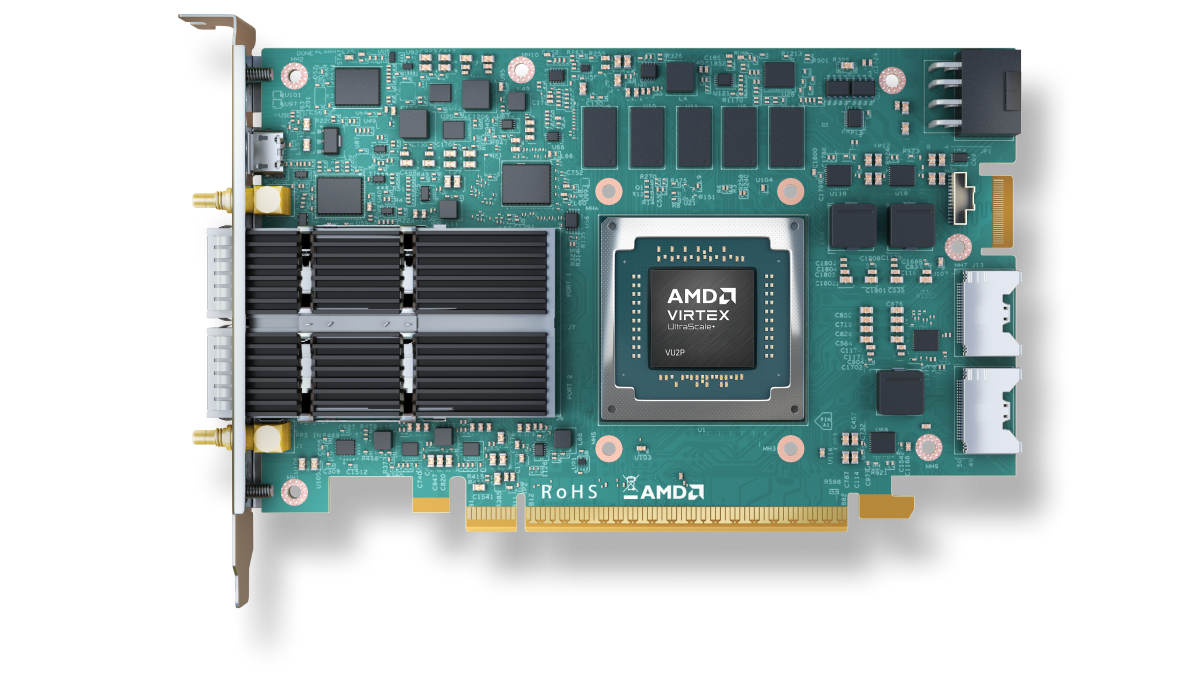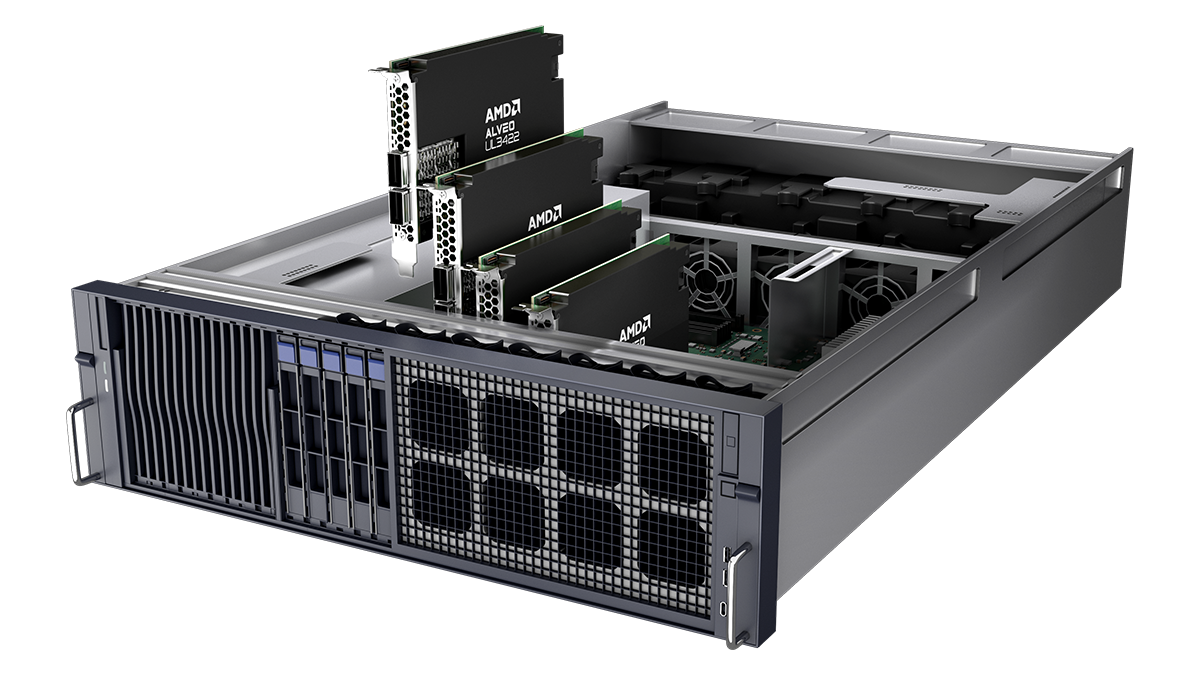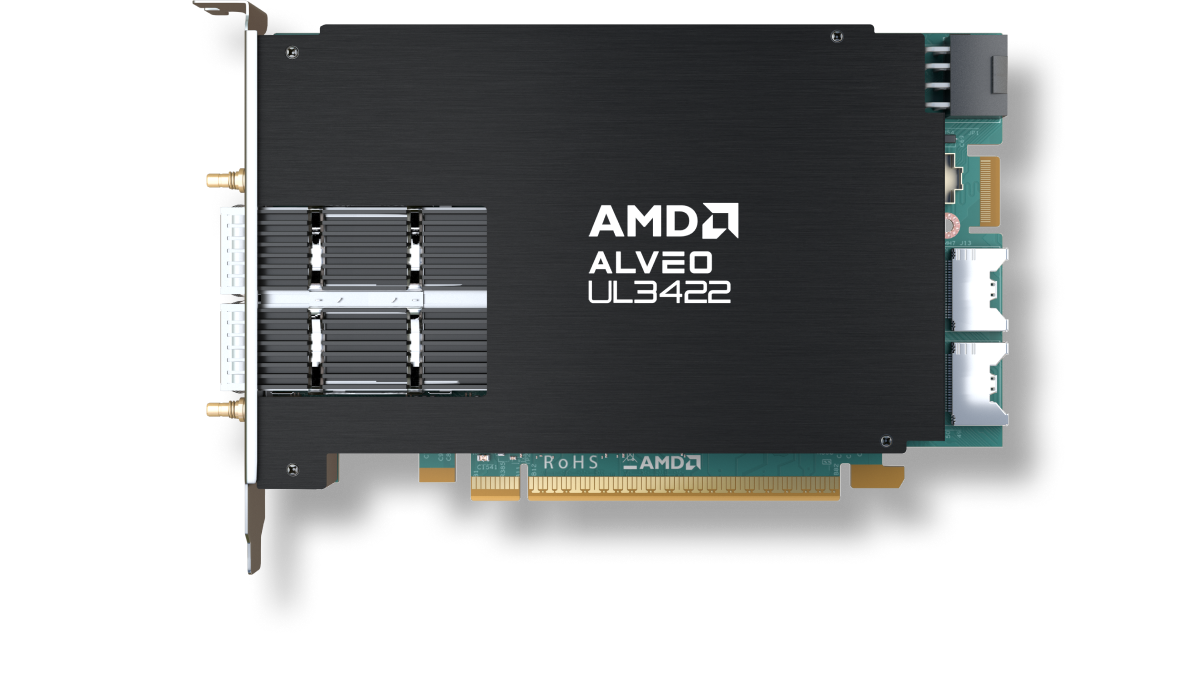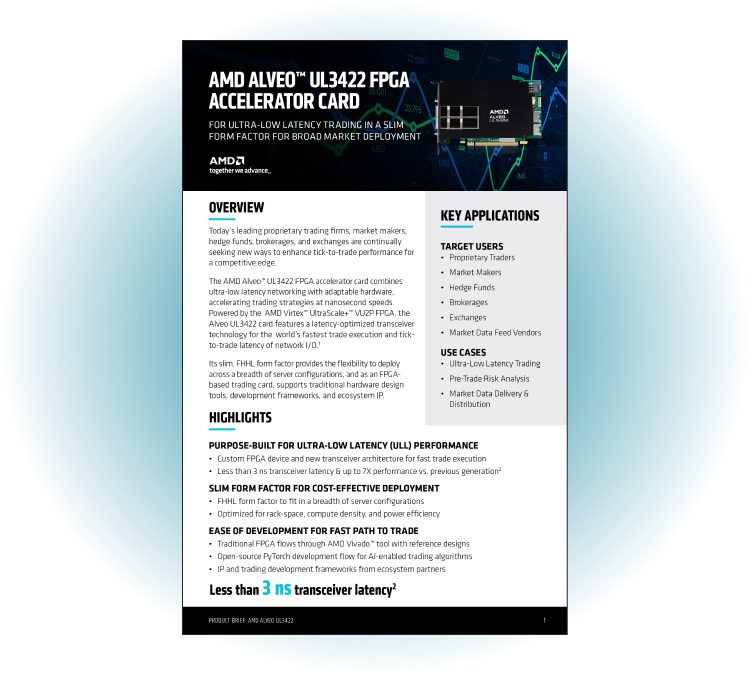
ULL Algorithmic Trading
From complex algorithmic trading to market-making services

World’s fastest trade execution on a FinTech accelerator¹


The AMD Alveo™ UL3422 accelerator offers ultra-low latency (ULL) trading in a slim form factor for cost-effective deployment.
Less than 3 ns transceiver latency2 for high performance, deterministic trade execution.
Cost-effective deployment for broad market adoption and deployment in exchanges world-wide.
Fast path to trade through reference designs and ecosystem solutions.



Powered by Purpose-Built FPGA
The AMD Alveo™ UL3422 is the world’s fastest trading accelerator providing superior ultra-low latency1 giving traders the edge they need for faster decision-making. The card is powered by the AMD Virtex™ UltraScale+™ VU2P FPGA built for electronic trading and features a breakthrough transceiver architecture to achieve less than 3 ns latency for world-class trade execution.2


The AMD Alveo UL3422 accelerator comes in a slim form factor for broad deployment in diverse server configurations, including servers from Hypertec for immediate deployment. By using purpose-built HFT infrastructure, trading firms can cost-effectively optimize rack space co-located at market exchanges4.
FPGA Design Tools and Ecosystem Solutions
Featuring 780K LUTs of FPGA fabric and 1,680 DSP slices of compute, the Alveo UL3422 accelerator card is built to accelerate custom trading algorithms in hardware, where traders can tailor their design to evolving trading algorithms and new trade regulations. The accelerator is supported by traditional RTL development flows using the Vivado™ Design Suite.
Special licensing is required to enable the targeted Virtex UltraScale+ device. Developers can request access to the Alveo UL3422 Secure Site for licensing and access to additional technical documentation. Reference designs to evaluate latency and performance, as well as test other features of the card, are available at the GitHub Repository.
Additionally, AMD provides the ability to evaluate performance with the open source PyTorch-based framework (FINN) for developers of low latency, AI-enabled trading strategies. The card is also integrated with partner solution ecosystem partner solutions such as Xelera Silva and Exegy nxFramework for rapid implementation of trading algorithms.



Proprietary trading firms, hedge funds, market makers, brokerages, and data vendors can deploy the Alveo UL3422 accelerator for ULL algorithmic trading, offering world-record performance1, pre-trade risk management, market data delivery, and more. The convergence of hardware acceleration, FPGA flexibility, and low latency networking ensures high performance and determinism across a breadth of use cases.



Get started today with the Alveo UL3422 accelerator card. Available from AMD and authorized distributors.

The AMD Alveo™ UL3422 is an ultra-low latency accelerator in a slim form-factor for cost-effective server deployment¹ in exchanges world-wide. It is powered by an AMD Virtex UltraScale+ FPGA purpose-built for electronic trading. The FPGA features a breakthrough transceiver architecture to achieve less than 3 ns latency2 for world-record trade execution1, delivering up to 7X lower latency vs. previous AMD FPGA technology3.


The Alveo UL3422 accelerator card combines ultra-low latency networking with adaptable hardware to accelerate trading strategies at nanosecond speed.


Sign up to receive the latest product news or get in touch with an AMD sales representative.